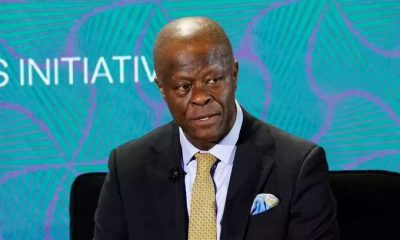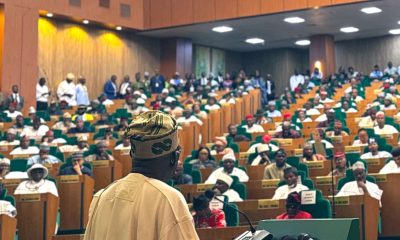Business
FG moves to end excessive revenue retention by FIRS, Customs, NUPRC as World Bank raises alarm

The federal government has announced plans to overhaul Nigeria’s revenue retention system following a World Bank report that criticised several federal agencies for keeping a disproportionately large share of the nation’s income.
In its latest Nigeria Development Update (NDU) report released on Wednesday, the World Bank said key revenue-generating institutions – including the Federal Inland Revenue Service (FIRS), Nigeria Customs Service (NCS), and the Nigerian Upstream Petroleum Regulatory Commission (NUPRC) – receive far higher allocations than similar agencies across Africa.
Other beneficiaries of the current structure include the Revenue Mobilisation Allocation and Fiscal Commission (RMAFC), Niger Delta Development Commission (NDDC), the Nigerian National Petroleum Company (NNPC) Limited, and the Frontier Exploration Fund.
The Bank described the revenue retention model as “excessive and inefficient,” warning that it erodes fiscal discipline and limits funds available for infrastructure and social investment.
Under the existing arrangement, the FIRS retains 4 percent of all non-oil revenues, including VAT, corporate income tax, and electronic money transfer levies, as well as a portion of oil-related collections excluding royalties.
The NCS keeps 7 percent of customs and excise revenues and 2 percent of VAT receipts, while the RMAFC takes 0.5 percent of non-oil revenues. The NDDC draws 3 percent of gross VAT revenues, and the NUPRC retains 4 percent of royalties from upstream petroleum operations.
Meanwhile, both the NNPC Limited and the Frontier Exploration Fund each receive 30 percent of production-sharing contract (PSC) revenues, a figure the Bank said is “substantially higher” than in comparable countries.
By contrast, the Kenya Revenue Authority (KRA) receives between 1 and 2 percent of its approved annual revenue target, plus a modest 3 percent bonus for exceeding projections. In Uganda, Ghana, and South Africa, revenue bodies are financed directly through parliamentary appropriations, ensuring tighter fiscal oversight.
The World Bank warned that Nigeria’s model – where multiple agencies draw directly from revenue collections – “undermines transparency, weakens budget control, and reduces the pool of funds available for national priorities.”
Responding to the report, Minister of Finance and Coordinating Minister of the Economy, Wale Edun, said the federal government is already taking steps to reform the system.
He revealed that President Bola Tinubu has directed the Ministry of Finance to review all existing revenue retention frameworks and deductions made by government agencies.
“The president has made it clear that we must ensure transparency and discipline in public finance management,” Edun said at the report’s launch in Abuja. “All deductions and retention practices are under review to make more funds available for investment and economic growth.”
The presidential directive, issued on August 13, forms part of the administration’s broader fiscal consolidation and public finance reform agenda aimed at improving efficiency, boosting revenues, and ensuring greater accountability.
Economists say the move could free up significant funds for the federal government’s development priorities if implemented effectively, while also restoring confidence in Nigeria’s fiscal management practices.







